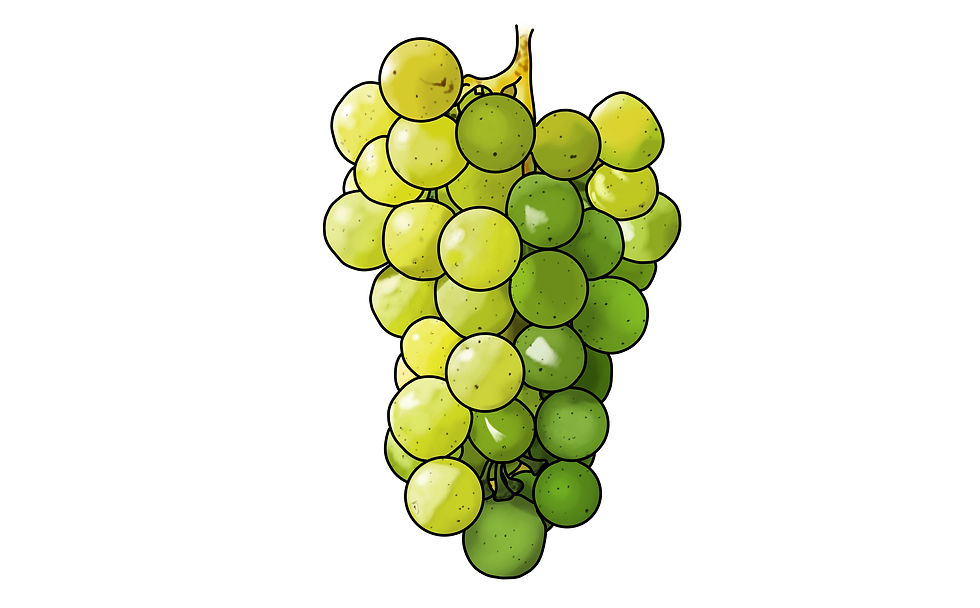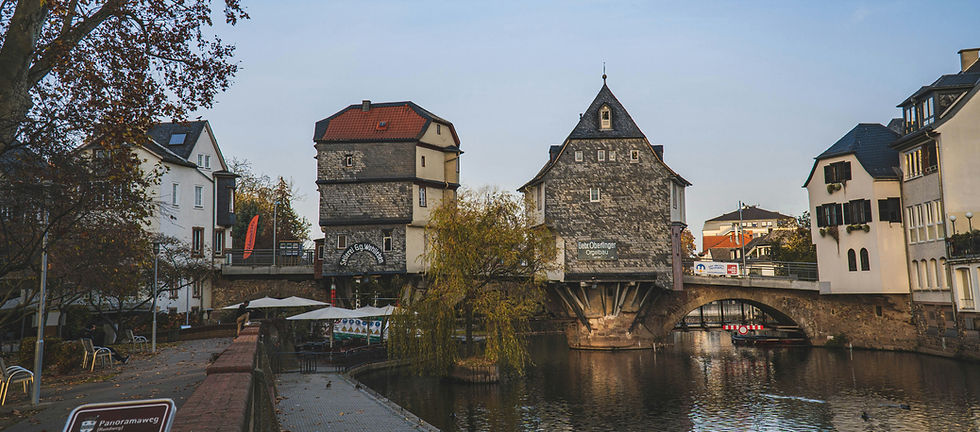I love 'Bad' German wine
- Lewis MacDonald
- Sep 11, 2025
- 3 min read

German wine has a bit of a poor reputation here in the UK. During my time in retail and hospitality, I can count on one hand the number of times I’ve had someone come into the shop specifically searching for a bottle of Nahe Riesling or Dornfelder from the Rheinhessen. This hesitancy to try German grapes goes so far that even customers willing to explore the world of wine still take a breath when I dare to suggest that a Gewürztraminer from Pfalz might be the perfect pairing with their Chicken Pad Thai. It seems that the British public can’t let go of a grudge against German wines dating back to the days of Blue Nun and Liebfraumilch that swept the British market in the 1970s.
In fact, the first thing my mother told me when I mentioned my intention to write this article was, “Oh God! I remember Blue Nun, there was always a bottle taking pride of place in my mother’s drinks cabinet… that and the Leeb-fru-milk. I never liked it, far too sweet.”
Seemingly, people of the 70s were at the sharp end of a massive marketing campaign, shoving cheap but not-that-cheerful wine in their face. It’s no wonder that generation began to generalize about German wine when their only real experience held such negative memories. Now, however, I find myself in a bit of a quandary.
Most of my customers are not those of my mother’s age. In fact, it would be more accurate to say that on an average day the age range maxes out at 45, too young to have first hand memories of the aforementioned dreadful mass-market milch. So how can it be that I struggle to convince someone no older than 32 that German wine is delicious ?
Has this dismissal become so much a part of us that it can be passed down in our genetic code?
I’ve been told I have my mum’s eyes, my dad’s nose, and my uncle’s taste in classic Bordeaux… I think the Riesling gene skipped a generation.

Personally, I think the answer to why people still avoid German wine is simply down to a lack of experience by the customer, and a lack of effort on the part of merchants to combat it.
For my part, I am certainly guilty of viewing low sales as an excuse to limit my German wine offering within the retail space. In my defence, when dealing with the kind of limited space afforded to an independent wine shop, I’m often having to forgo wines that excite me in favour of those that prove more economically profitable. I must admit to having been a little too harsh on my aversion to hosting German wines. To my shame for a couple of months I had not a single bottle to offer.
However, that all changed this July when I took part in German Wine Month, a challenge for independent businesses to try and spread the word of great German wine. With a bit of schmoozing and plenty of free tastes, I am finally making a bit of a breakthrough with our customers who are loving our range of dry, mineral-rich Rieslings, complex and intriguingly sour natural blends, and beautifully deep Burgundian-style Pinot Noir.
We have also offered a range of Riesling, Müller-Thurgau, and Pinot Noir, but according to our sales, the best German wine is Bad German wine… No, really! Our customers love Bad German wine, specifically a beautifully dry Riesling from around the town of Bad Kreuznach in the region of Nahe (pronounced Nah).
Customers are not only impressed by the quality of Bad German wine, but we’ve seen very positive reactions to the rich and complex Pinot Noir that offers Burgundian flavours at half the price.
To my surprise, we have even seen customers enjoy a glass or two of a Spätlese Riesling. This, for those who don’t know, is a late harvest wine designed to be naturally sweet. That’s right, people do like a sweet German Riesling!
So, to sum up, people like German wine when they give it half a chance. The lesson I am taking forward is that it’s often too easy to look at a lack of sales and quietly remove an entire country from the shelves. In the future, I shall do my best to remind my customers that German wine can be great, even the Bad stuff.




Comments